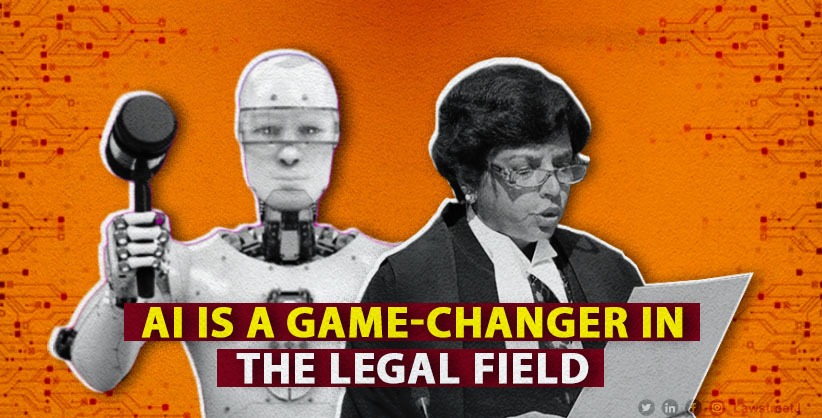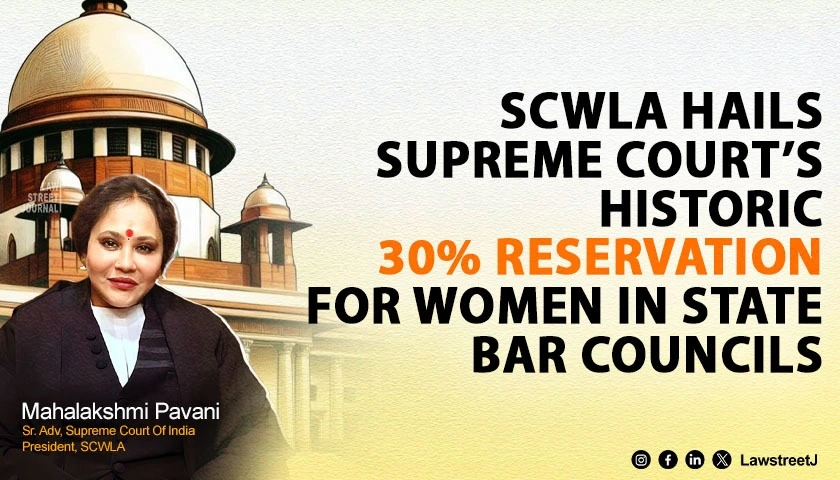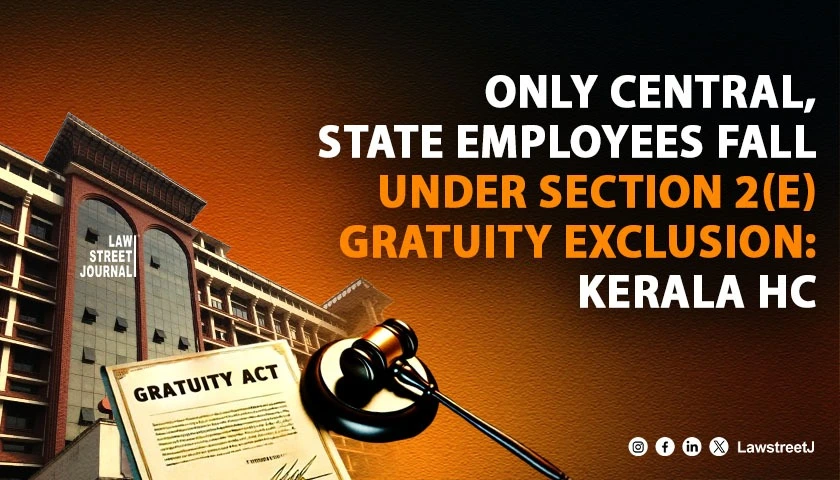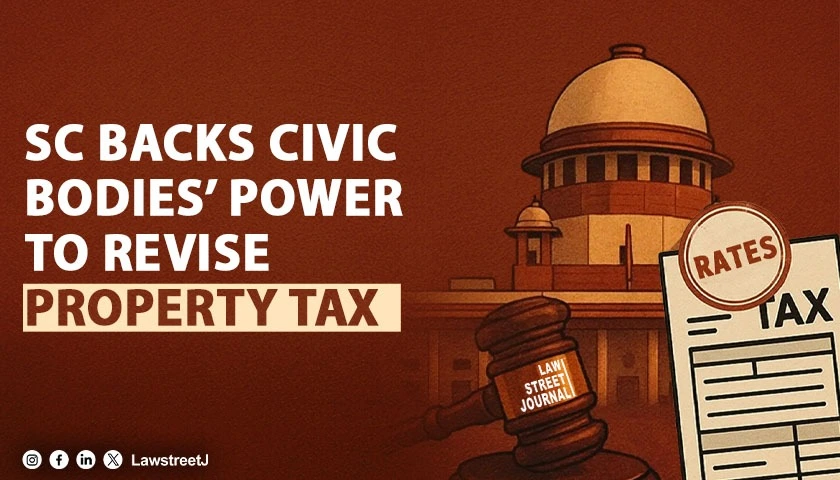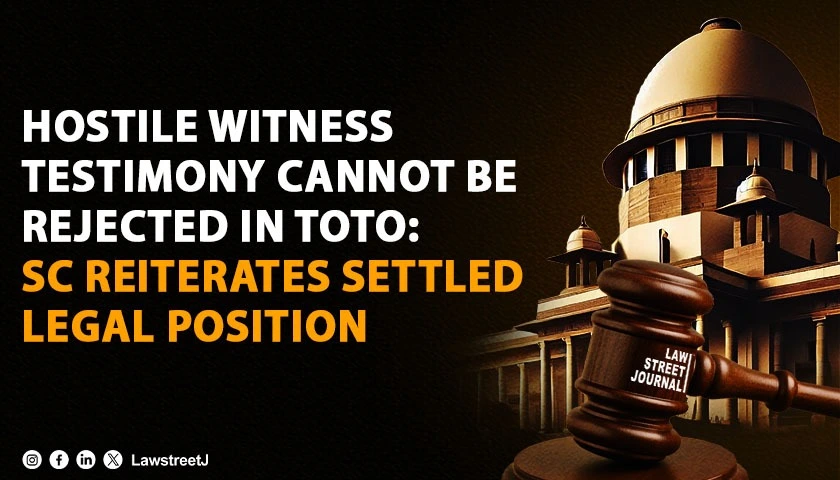Good morning, Mr. Sandeep Batra, Executive Director, ICICI, Mr. Nilanjan Sinha, General Counsel, ICICI Bank, Members of the Legal team of ICICI Bank, distinguished guests and friends from the media.
We have gathered today to celebrate the first anniversary of i-Amicus, the knowledge sharing platform created for the legal team of ICICI Bank. I'd like to start by congratulating the Bank for its foresight and innovation in launching i-Amicus, that has become an integral part of the workflow of the In-House legal team.
As we all know, technology has changed the way we live, think, work and communicate with each other. In the legal sector, advent of technology has revolutionized the manner in which disputes are resolved, both in courts and outside. A live example of this is SAMA, an online dispute resolution platform created by ICICI Bank that leverages cutting-edge technology and a network of highly skilled professionals to efficiently resolve disputes between the Bank and its consumers. SAMA has facilitated consumers to avail of swift and easily accessible case resolution. With its vision to align technology and law to offer ease of access and quality case resolution to its users, SAMA shines like a beacon of hope for many others in the industry.
Mr. Sinha took pride in sharing with me that till now, the platform has handled 1.2 crore cases and has settled over 25 lakh cases, completely online. ICICI Bank has also leveraged the power of SAMA and resolved over 35,000 cases through online arbitration and online conciliation. The result speaks for itself, with the average lifespan of a case reduced to just 45 days and the costs incurred per case dropping to INR 3000.
This clearly demonstrates how use of technology in resolving disputes can prove to be a game changer, offering swift and easily accessible case resolution to its users. Let us hope that this trend continues and we see more and more organizations adopt innovative solutions like SAMA to resolve disputes efficiently, cost-effectively and most importantly, without having to litigate in court. The biggest advantage of this initiative is that the Bank continues to maintain its relationship with its customers and reinforces their faith in the institution.
It is heartening to note that the legal community has kept abreast of technology and taken concrete step to utilize Artificial Intelligence at work. Before we delve deeper into this topic, let me quote a famous saying that encapsulates the essence of our discussion today. "Knowledge is knowing that a tomato is a fruit; Wisdom is not putting it in a fruit salad." It is undeniable that technology has played a significant role in keeping the wheels of justice turning during the peak of COVID-19 pandemic and beyond. It has also brought to light the immense potential of technology in the field of law and justice. In those challenging times, it was imperative for courts and all the stake holders to get tech savvy and its amazing how many of us, and I include my ownself in that list, were able to take the leap to PDF files and virtual court system. The lawyers met this challenge by logging into hearings through mobile phones, i-pads, on laptops and desktops. All this helped the courts to remain functional and continue to dispense justice to all, on time, efficiently and equitably.
- Why should Indian Lawyers embrace AI-
The advent of Artificial Intelligence has caused some concerns amongst the legal fraternity. Lawyers may fear that their expertise and skills will be made redundant by technology. However, to my mind, AI should not be viewed as a threat, but as an opportunity to enhance the quality of legal practice for the following reasons:
Firstly, AI has the potential to greatly improve the efficiency of legal practice by automating routine tasks, reducing the time required for legal research, and providing real-time access to information. This could create more time and space for lawyers to focus on more complex and value-adding tasks, ultimately leading to better outcomes for clients.
Secondly, AI systems can analyse vast amounts of data and identify patterns and relationships that may not be immediately obvious to humans. It leads to increased accuracy in decision-making and better outcomes for clients.
Thirdly, AI can be used to provide clients with instant access to information, personalized recommendations, and virtual legal assistance. It improves the overall experience of clients and help build long-term relationships.
Fourthly, integration of AI in the legal profession has the potential of creating new business opportunities, including development of new legal tech products and services.
Finally, lawyers who embrace AI will be better positioned to stay ahead of their competition and remain relevant in an increasingly technology-driven legal landscape.
All this comes with a note of caution. It needs to be emphasized that while adoption of AI has the potential to bring significant benefits to the legal profession, it also raises important ethical and legal concerns that must be assessed carefully. The legal community should approach integration of AI with caution and make sure that benefits of technology can be reaped without compromising on well-established principles of justice.
- Evolution of technology in the Judiciary-
The Indian Judiciary has seen a significant evolution in technology in recent years. This is a testament to the human spirit of innovation and progress. Advancements in Artificial Intelligence (AI) and automation have made it possible for courts to conduct proceedings virtually even when physical court proceedings had to be temporarily suspended in 2020-21. Use of technology has brought a number of benefits to the judiciary, such as increased efficiency, improved accuracy, a deeper outreach and accessibility.
Some of the key initiatives in this area taken under the aegis of the Supreme Court include:
- E-Courts project: The E-Courts project is a comprehensive plan to automate the entire court process, from case filing to delivery of judgments. This has resulted in a more efficient and transparent judicial system. The E-Courts project was originally introduced in 2007 (Phase -1), with an aim to incorporate technology in the existing legal system at the District/Taluka Court level to ensure efficient administration of justice and better access to litigants. Phase-2 of the project was approved in 2015, which further improved access to justice. Some of the crucial achievements of Phase-2 were Covid management software, National Judicial Data Grid, virtual courts, e-filing and digitisation of records. Phase-3 of the project aims at making the system more inclusive and user friendly. This is in line with the constant push from the Supreme Court to move the judicial process to a paperless mechanism and increased access to justice. The recent allocation of Rs 7,000 crore for Phase 3 of the e-courts project in the Union Budget 2023 will further help enhance accessibility of judicial institutions.
- E-Filing: E-filing of cases has made the process of filing faster, more convenient, and less prone to errors. The new e-filing 3.0 Portal was inaugurated on 9th April 2021 (and is accessible on https://filing.ecourts.gov.in.) In the new version, a new tab is provided which allows Advocates and litigants to record their oath with in-system video recording while uploading documents. The new version has also come up with a new dashboard including several options of my partners, Case Filing, Vakalatnama, pleading, e-payments, applications and portfolio. The Help section provided in the new version offers tutorial videos, FAQ and a user manual. The new E-filing portal also provides litigants the facility of engaging services of advocates. It has the option of indexing documents for Advocates.
E-Filing Rules have been drafted by the Supreme Court constituted e-Committee and circulated to all the High Courts for adoption. As on 31.12.2022, 19 High Courts have already adopted the Model Rules of e-Filing. An SOP has been tooled out by a High-level Committee comprising of judges of High Courts to provide a uniform set of Guidelines for usage of e-Filing in Courts. The COVID-19 pandemic has seen a surge in the number of lawyers and litigants registering for e-Filing. To promote e-Filing, all Central & State Government departments including PSUs have been requested to adopt e-Filing in all commercial disputes coming up in commercial courts. Instructions have been issued by the Supreme Court e-Committee to all High Courts to ensure that all Government litigations should be mandatorily e-filed with effect from 1st January, 2022. A similar communication has also been issued by the Department of Justice to all Ministries, requesting to use e-filing in all Government litigations with effect from 1st January, 2022.
- Video conferencing: To reduce physical appearance of parties in courts, Hybrid method of hearing cases has been adopted. Lawyers and litigants from any part of the country and from abroad can now log into the court hearing and present their case. This has facilitated litigants living in remote areas to participate in court proceedings with the comfort of sitting at home.
- Digitalization of records: Significant progress has been made in digitalization of court records, making it easier for lawyers and litigants to access the relevant information, without having to physically inspect court files.
- Utilisation of AI in adjudicating small matters-
Matters with small stake such as traffic violations, credit card recoveries, and cheque bouncing cases, constitute a significant portion of the workload of our District courts. Efficient disposal of such cases is essential for efficient functioning of the legal system. Use of Artificial Intelligence in these cases can help reduce the backlog and improve the speed of disposal. Lok Adalats conducted virtually through the pandemic were successful in disposing several such cases. Use of AI in adjudicating cases upto a fixed limit, such as credit card frauds and cheque bouncing cases has the potential to greatly improve efficiency and speed up disposal.
One way AI can be used in this context is through the development of predictive algorithms that could help identify patterns of fraud and assist judges in making informed decisions. This could lead to faster resolution of cases, as well as free the judges to hear and dispose more complicated and long pending matters.
Another way AI could be used is through the development of chatbots or virtual assistants that could assist litigants in navigating the legal process and furnishing them with relevant information about their cases.
It is important to note that while the use of AI in the judicial system has the potential to bring about significant benefits, it also raises concerns about fairness, bias and protection of civil liberties. Therefore, any implementation of AI in the judicial system must be done with caution and with proper safeguards in place to ensure that the rights and privacy of litigants are adequately protected and the fundamental principles of justice are not compromised in any manner.
- Ethical Concerns in the utilisation of AI in Indian Judiciary-
As we embrace technology, it is imperative that we are aware of the ethical concerns that come with the use of Artificial Intelligence in courts. Use of AI raises concerns about accountability, transparency, and protection of rights of parties. It will be critical to establish clear guidelines and protocols to ensure that justice is dispensed equitably to all parties. Some of the ethical concerns include:
- Bias: We know that AI systems are only as unbiased as the data they are trained on. If the data used to train AI systems contains any bias, it is bound to reflect in the decision-making process of the system, which could result in discrimination and undermine the principles of fair play and equality.
- Lack of Transparency: The decision-making process of AI systems is often opaque, making it difficult for litigants to understand how a particular decision has been arrived at. This lack of transparency can make it difficult for litigants to challenge the decision and result in undermining in accountability of the judicial system.
- Compromise on Privacy: Use of AI in the judicial system involves processing of large amounts of personal data, including sensitive information about litigants. There is a risk that this data could be misused or shared without consent, which could have serious consequences for privacy and civil liberties.
- Lack of Accountability: Deployment of AI in the judicial process would raise questions as to who would be held responsible for a wrong decision made by the system. If an AI system makes a decision that runs contrary to settled legal principles, who would be held accountable.
- Human oversight: While AI has the potential to improve efficiency and speed of the judicial system, it is important to ensure that human oversight is maintained. AI systems cannot replace human decision making. There should always be mechanisms in place that allows human intervention, wherever and whenever necessary.
- The Role of Judges in an AI-Powered Judiciary-
A judge comes on the Bench with a vast and varied legal and personal experience, whose role goes beyond bookish application of the law. She is equipped to weigh the facts of a case, understand human behaviour, and apply the law to circumstances so as to arrive at a fair and just decisions. AI, however advance as it may be, lacks human empathy, compassion, and reasoning that is essential to dispensation of justice. In an AI-powered Indian Judiciary, the role of judges is likely to change and evolve. However, the fundamental role of judges in ensuring fairness, impartiality and protection of civil liberties will remain constant and unchanged.
While AI has the potential to greatly improve the efficiency of the judicial system, it can never supplant a human judgment. Judges will continue playing a pivotal role in ensuring that the principles of justice are upheld and that the rights of litigants are protected. The role of judges in an AI-powered Indian Judicial system will evolve with the introduction of new technology, but the fundamental responsibility of ensuring fairness, impartiality, and protection of civil liberties will remain unchanged. At the end of the day, AI cannot be a substitute for a trained judicial mind. Nor can AI replace the human element that is required from a lawyer to conduct a case or give an opinion. It is also not a substitute for the wisdom and real-life experience of a judge in the decision making process.
- The Future of AI in the Indian Legal System: -
It is a fact of life that AI is here to stay, and we must be prepared to face it with wisdom, foresight, and an open mind. As we embrace technology, it is imperative for us to balance the benefits of AI with the ethical concerns that accompany it. Use of AI must be guided by clear guidelines and protocols to ensure that justice is dispensed with an even hand to all the stakeholders. With the passage of time, AI-powered systems also expected to become more sophisticated and play a prominent role in predicting outcomes of legal cases, enabling lawyers and judges to be better prepared and take more informed decisions based on a comprehensive analysis of past precedents, the current legal position in the country and the evolving jurisprudence in foreign jurisdictions. This will lead to increased accuracy in the decision-making process and better outcomes for all concerned. It can improve the overall efficiency of the legal process and reduce the time and cost associated with resolving disputes.
The trend towards virtual and hybrid courts is also expected to continue to grow, with AI-powered systems playing a key role in enabling remote access to the justice delivery system and reducing the need for physical court appearances. This has the potential to greatly increase access to justice for all citizens, regardless of their geographical location or circumstances.
Conclusion
To conclude, AI is a game-changer in the legal field and has the potential to revolutionize the way lawyers work. In the coming years, the role of AI is bound to expand in shaping the legal world and bring about positive changes. As we celebrate the first anniversary of "i-Amicus", I hope you continue swimming against the tide, in this exciting and rapidly changing landscape of legal technology.
Stephen Hawking, the famous English theoretical physicist, cosmologist and author had said that:
Artificial Intelligence is likely to be either the best or worst thing to happen to humankind
At the same time there are no limits to growth because there are no limits to the human intelligence and imagination. Afterall it is mankind that has created AI. The bottom line is that AI can never replace the human values that are deeply ingrained in the Constitution of countries, in Institutions of Excellence in the Academia and Governments and the Civil society. So, let us embrace technology and AI, but with wisdom and a steadfast commitment to the Rule of Law.
Thank you.

